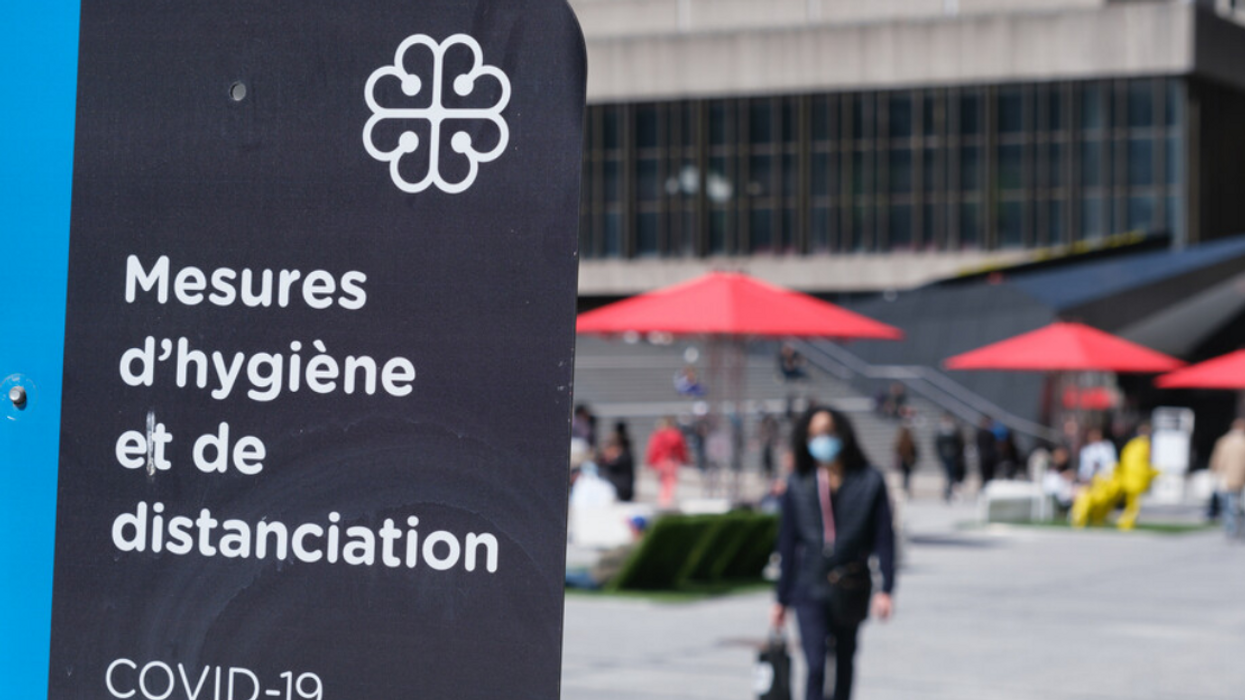Pretty Much Everybody Had COVID Antibodies In Canada in 2022 — Here's What It Means
Racialized non-Indigenous Canadians faced higher COVID-19 infection rates, a study shows.

A close-up of a Montreal COVID-19 hygiene and social distancing sign.
The phrase "post-pandemic" is becoming increasingly commonplace, but is Canada — let alone the world — really done with COVID-19? The second part of an ongoing Statistics Canada survey shows that, for many Canadians, the pandemic left more of a mark than we'd like to think.
Tested between April and August 2022, just over half — 54% — of Canadian adults who participated in the survey had antibodies that indicated a past infection with SARS-CoV-2, the virus that causes COVID-19, StatsCan says. Surveyed at the same time, 40% of Canadians indicated that they didn't think they'd ever had COVID-19.
This means a certain percentage of Canadian adults have been left more susceptible to post-COVID symptoms and long COVID without even knowing it.
That 54% infection rate is "more than 20 times higher than the 2.6% observed in early 2021," according to Statistics Canada.
The survey, the Canadian COVID-19 Antibody and Health Survey (CCAHS), is intended to provide a nationally representative sample of the population. It includes over 100,000 Canadians selected randomly across all ten provinces.
During the second cycle's testing period, a whopping 98.1% of Canadian adults had antibodies against SARS-CoV-2, whether gained through vaccination, previous infection, or both.
Additionally, racialized non-Indigenous Canadians were more likely to have antibodies from infection, as opposed to vaccination, than white Canadians. This indicates that racialized, non-Indigenous Canadians experienced higher rates of infection. Younger Canadians were more likely to have been infected than older Canadians, but older Canadians living alone were less likely to be aware of their infection.
"These data also reaffirm findings that racialized Canadians have had a greater incidence of COVID-19 than non-racialized Canadians, pointing to systemic issues that must be addressed now," said Catherina Hankins, the co-chair of the COVID-19 Immunity Task Force, one of the organizations behind the survey.
A follow-up survey to the CCHAS second cycle will launch in spring 2023.
